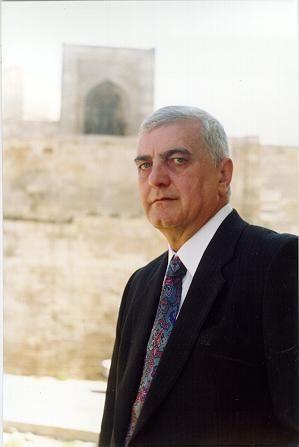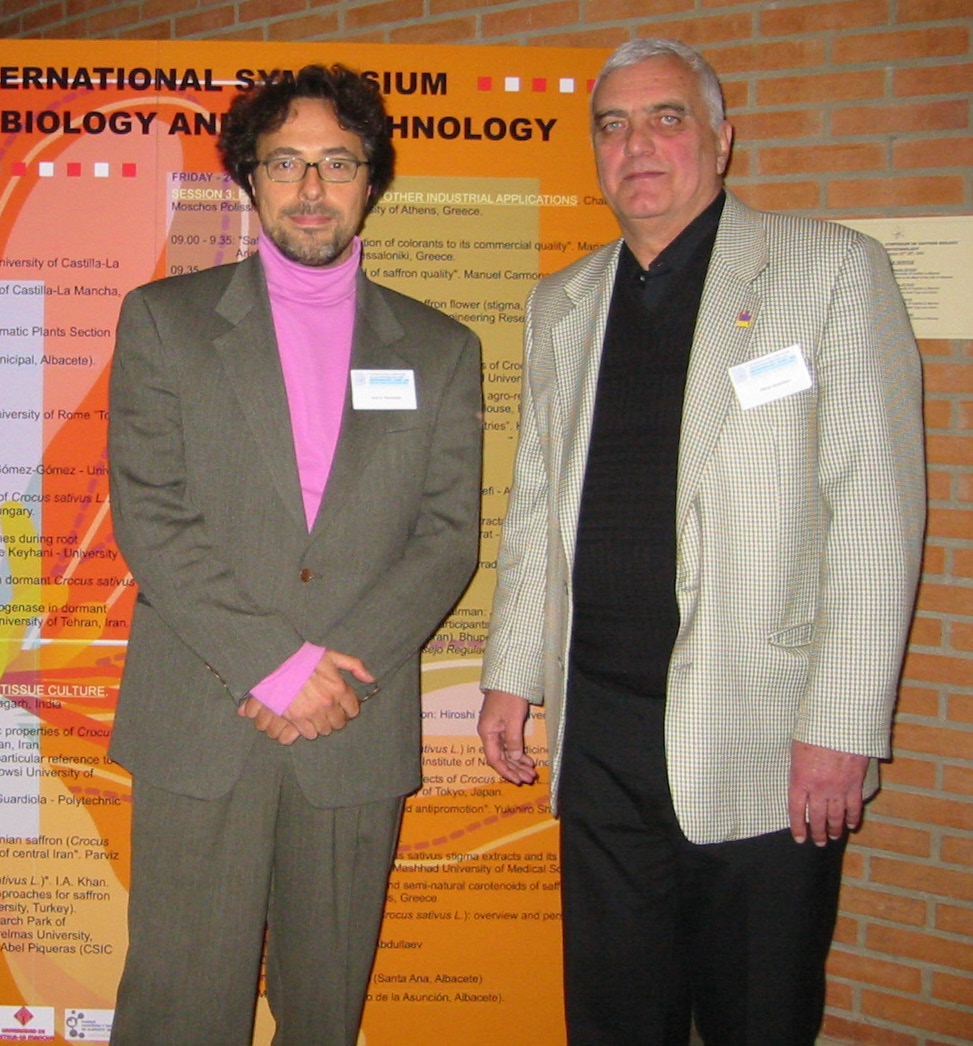Dr. Fikrat Adbullaev, head and founder of the Experimental Oncology Laboratory at the National Institute of Pediatrics in Mexico City and a tireless proponent of saffron as a cancer preventing agent in the diet, passed away on July 17, at the age of 62, in Mexico City. His death was sudden and unexpected. Dr. Abdullaev an innovative and free-minded scientist that served as example for a growing cohort of researchers interested in plant-based biopharmaceuticals and nutraceuticals. For many scientists, Dr. Abdullaev's ideas, honesty, and enthusiasm, were inspiriting. Fikrat Abdullaev was born on October 18, 1943, in Baku, Azerbaijan, son of Ilias Abdullaev and Fatma M. Jafarova. He received a Bachelor in Science degree in Chemistry at Baku State University in 1965, with a focus in the biochemistry and molecular biology. In 1970, he obtained a Ph.D. from the Institute of Botany at the Azerbaijan Academy of Sciences and in 1989, a Doctorate in Biological Sciences from the Ukrainian Academy of Sciences in Kiev.
His professional and scientific career was begun in the former Soviet Union, first at the Institutes of Genetics (1966-1970) and Botany (1970-1973) of the Azerbaijan Academy of Sciences in Baku, and then in the Institute of Molecular Biology of the USSR Academy of Sciences in Moscow (1973-1976). From 1976 to 1986, he was Associate Professor and Head of the Molecular Enzymology Laboratory at the Institute of Physics of the USSR Academy of Sciences. In 1986, he became Head of the Genome Biochemistry Laboratory in the Institute of Botany at Baku. He was visiting scientist in the Department of Biochemistry of the Stockholm University in 1979, and at the Institute of Biochemistry at the University of Munich (1982). Through an exchange program between the Academies of Sciences in the United States and the former Soviet Union, Fikrat Abdullaev traveled to Rutgers University in New Jersey to further his research in 1990, joining Gerald Frenkel and his team in the Department of Biological Sciences to publish three pioneer papers, which together with those of S.C. Nair and co-workers in India, first described the antitumor effects of saffron extracts. This research initiated a search for the responsible saffron constituents, the mechanism of action, the specificity on different cell lines, and the in vivo effects in animal models, leading to about 40 experimental and review articles with various research groups in Greece, Spain, Hungary, India, Iran, Japan, Azerbaijan, Mexico, USA and other countries. |
|
In 1995, Dr. Abdullaev moved to Mexico as a researcher in the Department of Research and Postgraduate in Food Science, Faculty of Chemistry, Autonomous University of Querétaro.
Since 1997, he was head and founder of the Experimental Oncology Laboratory at the National Institute of Pediatrics in Mexico City, where he assembled a team of Mexican researchers and obtained grants from the Mexican National Council of Science and Technology for support of research. At the Institute of Botany in Baku during the 1980s, Fikrat Abdullaev conducted several experiments with saffron extract, interested chemoprevention through the use of natural or synthetic substances, alone or in combination that would to prevent the development of diseases such as cancer. In Mexico his research was on nucleic acid and protein biochemistry, selenium and saffron biochemistry, chemical toxicity and cytotoxicity in vivo and in vitro; and mechanism of antitumor effects of chemical and naturally occurring agents. He was a tireless proponent of the virtues of saffron as a chemopreventive element of the diet and one of the engines of saffron research all around the world Dr. Abdullaev co-chaired the 1 st International Symposium in Saffron Biology and Biotechnology, held in Albacete, Spain in October, 2003, and had planned to co-chair the second such symposium in Masshad, Iran, in October 2006 under the auspices of the ISHS. He was author of over 120 scientific papers and abstracts, and several patents. He was member of the Mexican Academy of Science, Sistema Nacional de Investigadores de Mexico, Mexican Society for Biochemistry, American Association for the Advancement of Science, New York Academy of Sciences, American Association for Cancer Research, Asociación Médica del Instituto Nacional de Pediatría, Institutional Scientific Committee (Institute of Botany, Azerbaijan Academy of Science, Baku), Azerbaijan Society for Genetics, Azerbaijan Society for Biochemistry, Board Directors of the Azerbaijan Scientific Association, Board Editors of Journal of Food, Agriculture & Environment, and International Panel of Reviewers for Journal Medical Science Monitor.
Dr. Abdullaev was married to Zemfira Nagieva (a petrol chemist) and leaves two daughters, Kalima, a medical dentist in Denmark, and Aynur, an economist in Germany, plus four grand-children, three boys and a girl. He was a loving husband, caring father and grand-father, and an excellent human been, full of compression and tolerance. He delighted everyone with his scientific sharpness, experience, kindness, and excellent sense of humor. Those who had the privilege of being his friends are devastated by his lost. |

